Sometimes you don’t have a group around you to play games with. You might be alone with your significant other, a parent or child, a sibling, or a friend, and you might want to play a game. There are thousands of games out there which support two or more players, but there’s also a wealth of games made just for two. Here are my top 5.
There are loads of classic games like Chess, Go, Nine Men’s Morris, Cribbage and Mancala which are still played today, but in this guide I’m going to focus on games from the last 25 years made exclusively for two. These are games which I think should be in your collection not just because they’re great games, but also because you can readily buy them.
Please also note that the ranking is personal to me, not an indication of what’s ‘best’, and that on any given day the order might change, depending on my mood. The important thing is that they’re all great.
5. Lost Cities (1999)
Kosmos Games
This is the oldest game on my list, and it’s a game I still play today. Lost Cities is a Reiner Knizia (Tigris & Euphrates, My City, Ra) classic, where each player can decide whether or not they want to embark on an ‘expedition’ and start laying down cards of a colour on their side of the board. The cards in each of the five suits run from 2 to 10, and each card you play must be higher than the last one played in that colour. The catch is that whenever you start a colour, you start on -20 points, and have to work back up to zero before you start scoring points.
In true Knizia fashion, there are just too many options, and with five colours between two players, someone’s going to get tempted to start a third. It’s a really personal little duel, and I take no end of delight in watching someone start a run of a colour, knowing full-well that I have the 9 and 10 of that suit in my hand. Add to that the multiplier cards which (if you choose to use them) have to be played before you start a run, which will multiply your points – or negative points! – and it’s a brilliant example of pushing your luck.
Lost Cities is an classic, and I’ve had a copy in my collection for longer than I can remember. You can pick it up for less than £20, and it’s great.
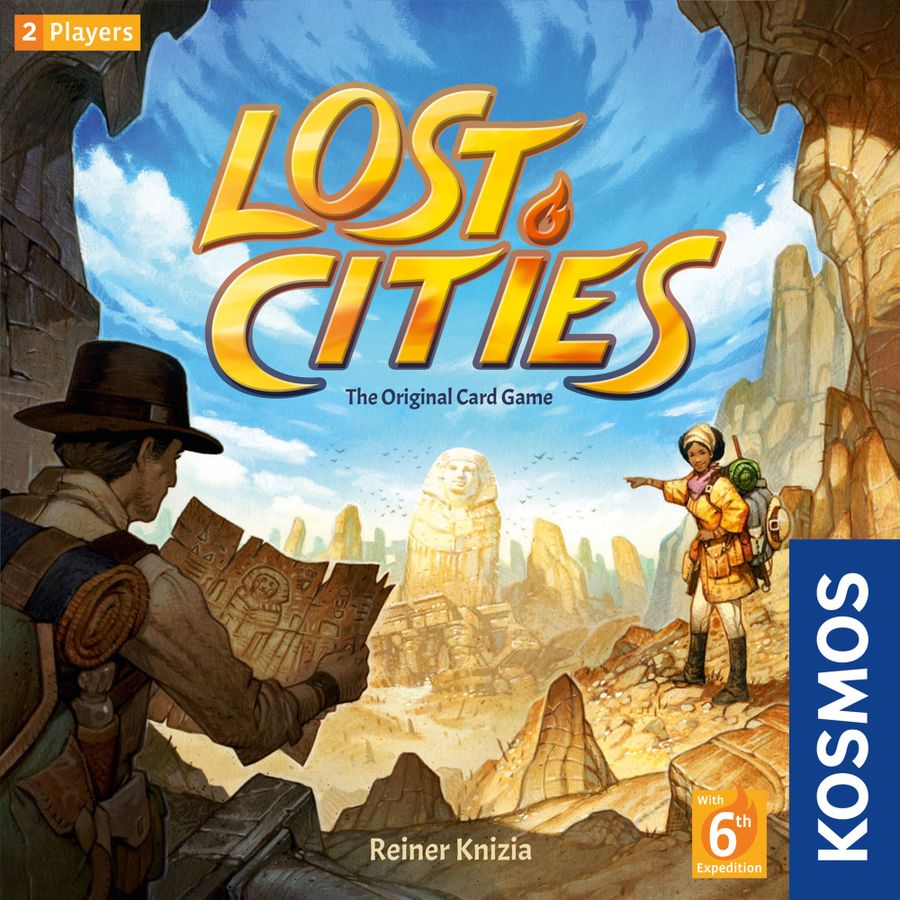
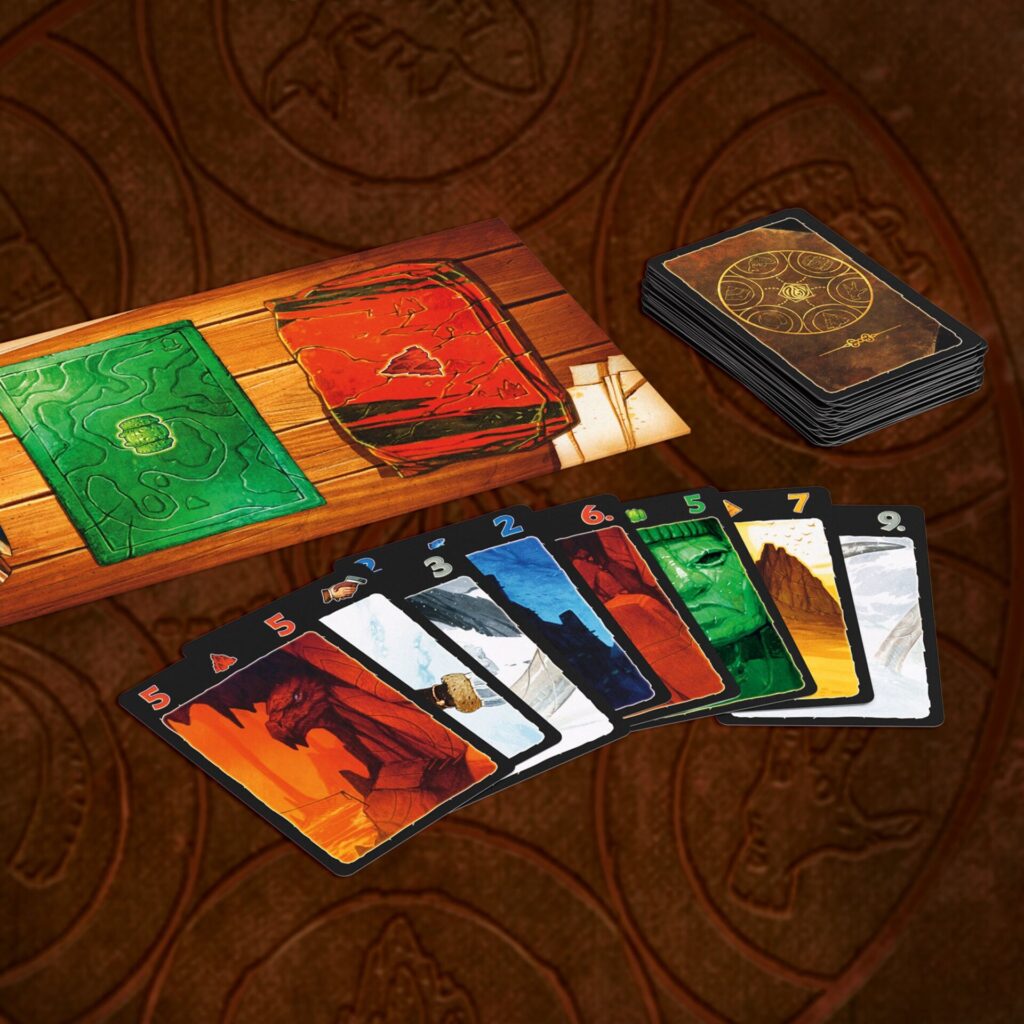
4. Jaipur (2009)
Space Cowboys
Jaipur, by designer Sebastian Pauchon (Jamaica, Yspahan) is a card game about trading fabrics, spices and precious gems, hoping to become the Maharajah’s personal trader. You’re both buying cards from the central market, then selling them to earn tokens, which in turn add to your final tally in deciding the winner.
I bought Jaipur in 2010 originally, and played it to death, then bought another copy. It’s safe to say it’s a good game. “F*$king camels” is a phrase you might come to know after a few games, as camel cards are worth nothing, but can be used to trade for goods. If there’s nothing you want from the market, you can pick up all the camels, but there’s something frustrating about having a handful of camels.
Jaipur is really easy to learn, and it gets increasingly tactical as you play it more and more with the same person. You start second-guessing what the other person’s strategy is, and trying to decide what you want to do. Diamonds and Gold are worth a lot, but there’s less of them than leather. Quality, or quantity? The more you play Jaipur, the better it gets.
It’s only around the £15-20 mark, so really it’s a case of whether you have a good reason not to buy it.
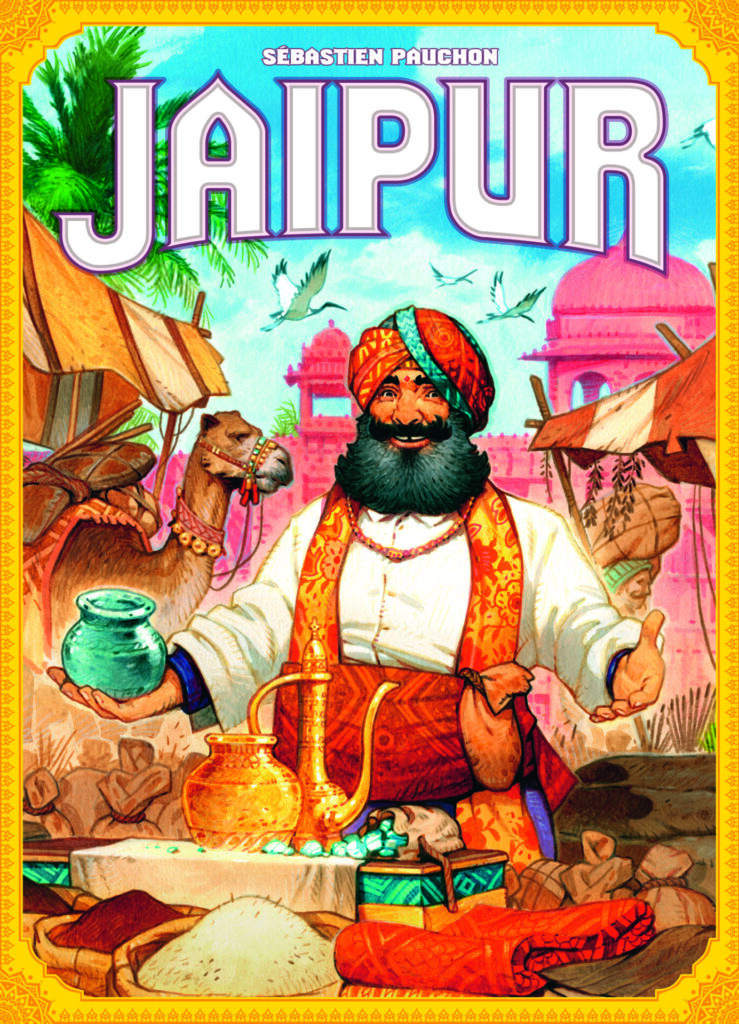
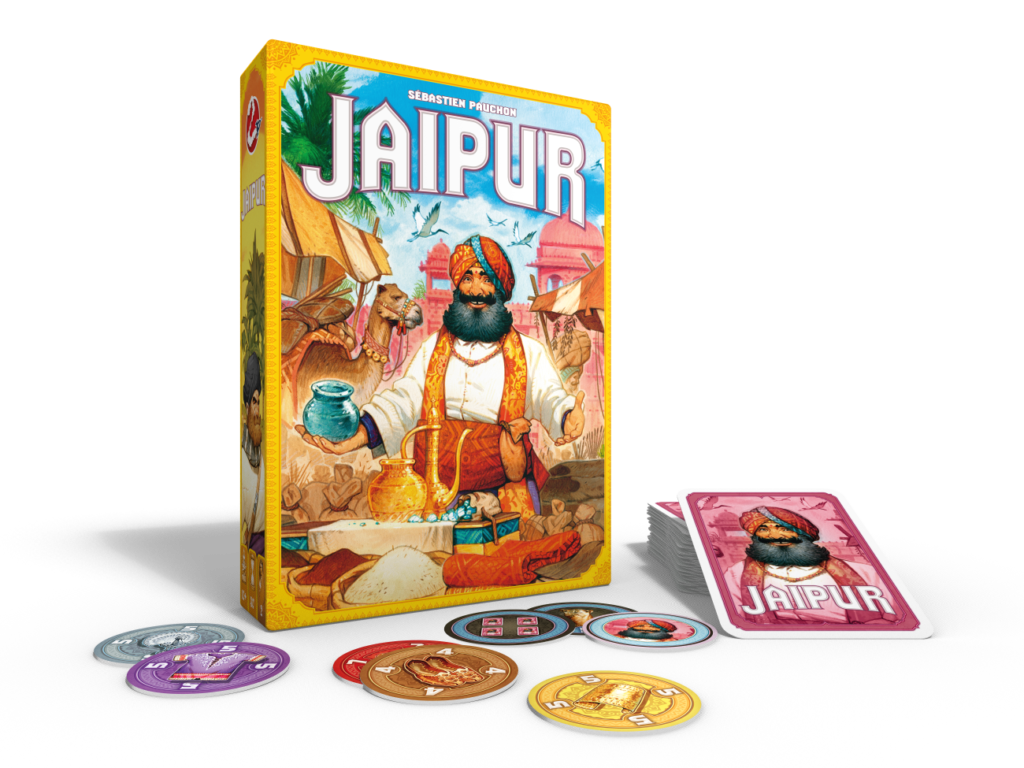
3. Targi (2012)
Kosmos Games
Andreas Steiger might not be a designer whose name you recognise, and that’s because other than Targi, he’s got no other games credited to his name. But in Targi, he made a game that most other designers would have been delighted to create. It’s a game about trading dates and spices, and expanding Tuareg tribes in the desert.
I’m a massive fan of Targi, and I recommend it to just about anyone who talks to me about getting something small, but deep. The board, as such, is a grid of cards, and through clever worker placement you simultaneously claim resources as your own, and try to deny your opponent the thing you think they want.
It’s deliciously tactical, and it’s full of difficult decisions on every turn. Deciding whether to go for something you want, or just blocking your opponent, is agonising at times. It’s such a simple game to play, and I always find it amazing how deep a game Andreas managed to cram into a few cards and chits. If you want to get your Euro game fix in a package that’s cheap, and small enough to take to the pub one night, Targi is an essential purchase. At less than £20, you’d be mad not to.
I wrote a full review of Targi last year, which you can read here.
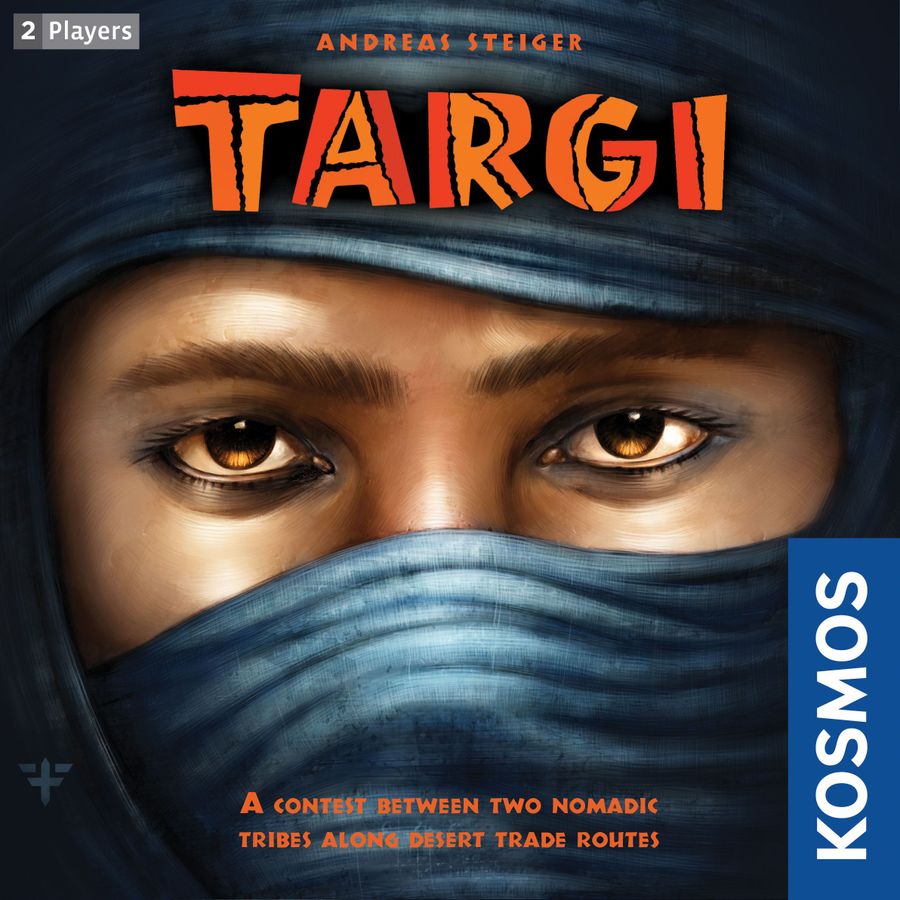
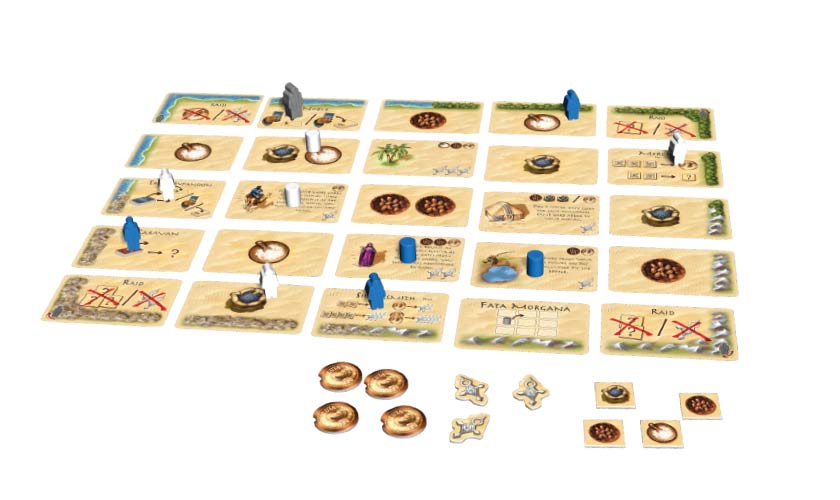
2. Watergate (2019)
Frosted Games / Capstone Games
Watergate is an asymmetric tug-of-war game set during the height of the Watergate scandal in the US. One person plays as the Nixon administration, the other as the press of the Washington Post. Both players have different goals, and use their dual-use cards to swing momentum towards them, gain initiative, or to uncover evidence. The Post try to use the evidence to connect two informants to Nixon, while he tries to remove evidence and swing popular opinion irreversibly .
It’s designed by Matthias Cramer (Rococo, Glen More II Chronicles), and I love the agony of choice you get on every turn. Your deck of cards gets recycled, like in most other games, but instead of playing a card for its value, and moving evidence or momentum in your direction, you can play some as actions. Some of these actions are really powerful, but might see the card removed from the game. Deciding when to take those actions can really feel like make-or-break time.
The back and forth is fantastic, and the balance of trying to move evidence and momentum onto your half of the board, and trying to complete the spatial link puzzle on the other side of the board is so much fun. Even if the idea of politics in a game bores you to tears, I strongly urge you to give Watergate a try. You can pick it up for a shade under £30.
I wrote a full review of Watergate last year which you can read here.
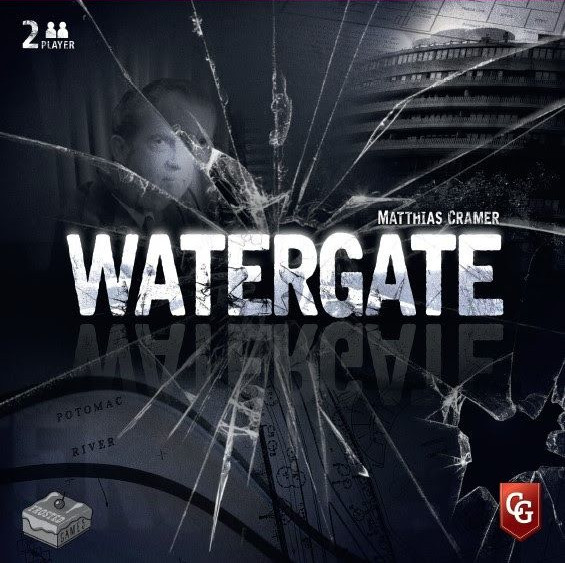
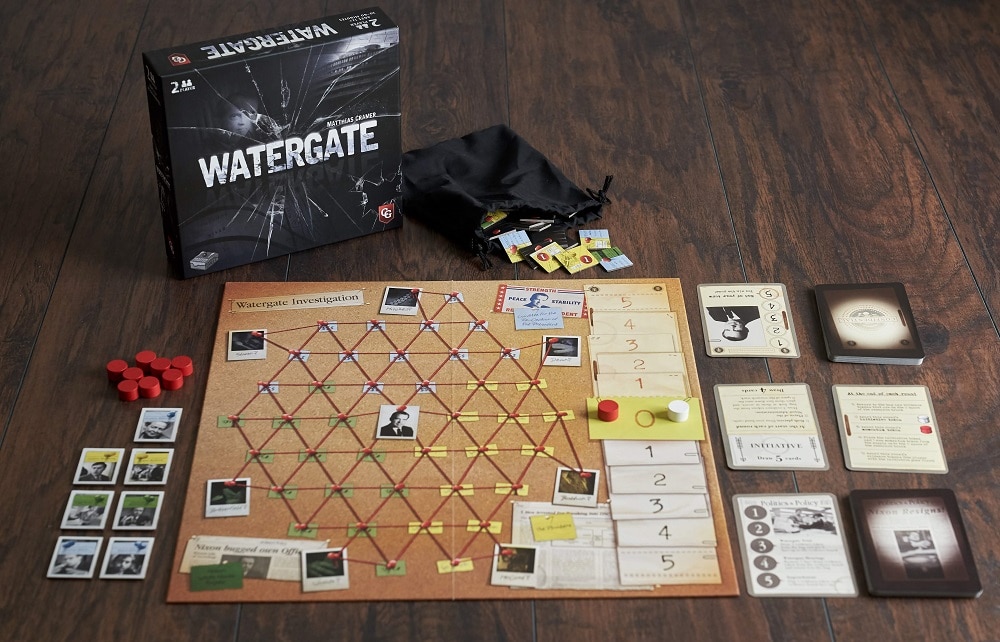
1. 7 Wonders Duel
Repos Production
My Number One spot goes to the spin-off from the original 7 Wonders game – 7 Wonders Duel. Duel took the formula established in the original game, which worked best from four to seven players, and boiled it down to a two-player game. Antoine Bauza (Takenoko, Hanabi) and Bruno Cathala (Five Tribes, Kingdomino) made a brilliantly balanced game with multiple routes to victory.
7 Wonders Duel plays in about half an hour, and the players create a tableau by purchasing cards from the display, boosting the resources available, and building those famous Ancient Wonders of the World. At the same time there’s a track depicting military strength, and tokens to claim marking scientific supremacy. If you do well enough in either of those areas, you can trigger a win before the game even ends. So while you’re building your own tableau, you need to keep an eye on your opponent, lest they sneakily build an all-conquering army. Denying someone a card is often as important as claiming one for yourself.
The way the cards are laid out in each of the three ages, with some ‘locked’ by those on top of them, and some face-down until they’re unlocked, adds a nice level of strategy to the game. No two games are the same, and it’s really easy to teach the core concepts of the game. I’ve played 7 Wonders Duel a lot of times now, and I still enjoy each game as much as I did before. It satisfies that Euro-loving part of me that loves to see a tableau of resources come together, in a similar way to Splendor.
You can grab 7 Wonders Duel for around £20, and if you ever play games with one other person, you really ought to be playing this one.
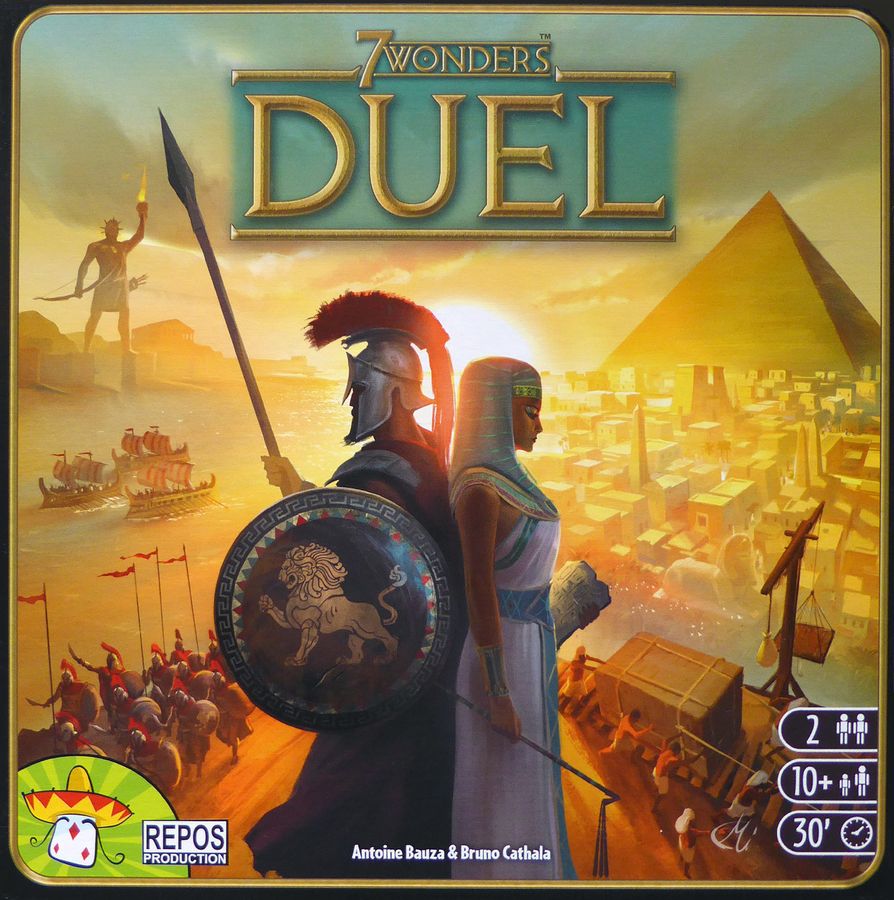
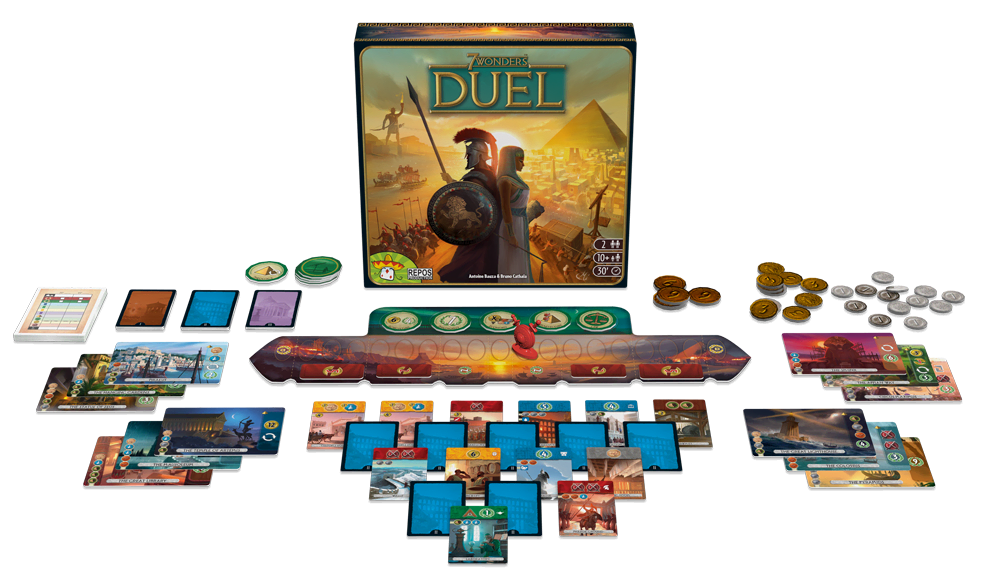
Summary
There you have it then. My top 5 two-player games. There are so many great games that I had to cut from this list, and I want to give honourable mentions to Patchwork, Battleline / Schotten Totten, Undaunted: Normandy, abstract classic Hive, and the ever-present Twilight Struggle. The games I’ve listed above though are all fantastic, readily-available, and cheap. You could pick up all of them for around £100, even if you shop at your FLGS (which I urge you to do if you can), and you’ve have a solid collection of small, brilliant two-player games that will last you years.
The reason 7 Wonders Duel pipped the others to the number one spot is because of the expansions. Targi has an expansion, but it doesn’t feel drastically different to play. The two expansions for 7 Wonders Duel (Pantheon, and last year’s Agora) are both great and really add loads of freshness and new things to do in the game, if you find it getting stale for you, or if you just want something a little deeper.
Leave any comments down below, or find me on Twitter and tell me how wrong I am, and which games you’d put in the list instead ;).
